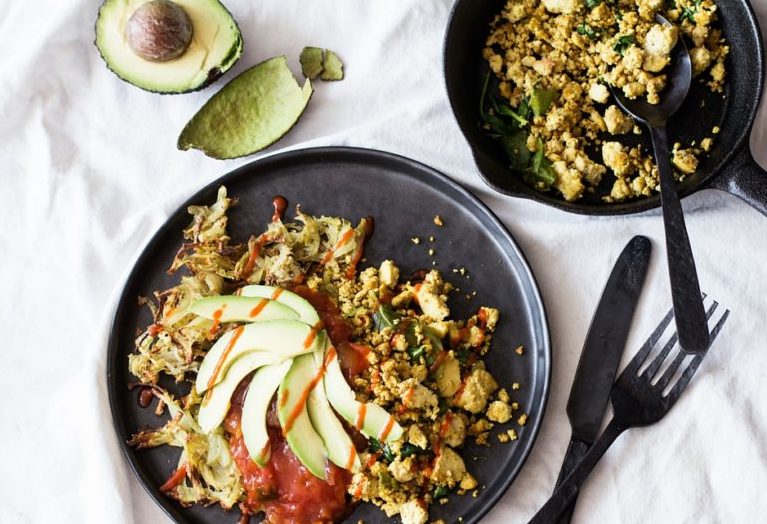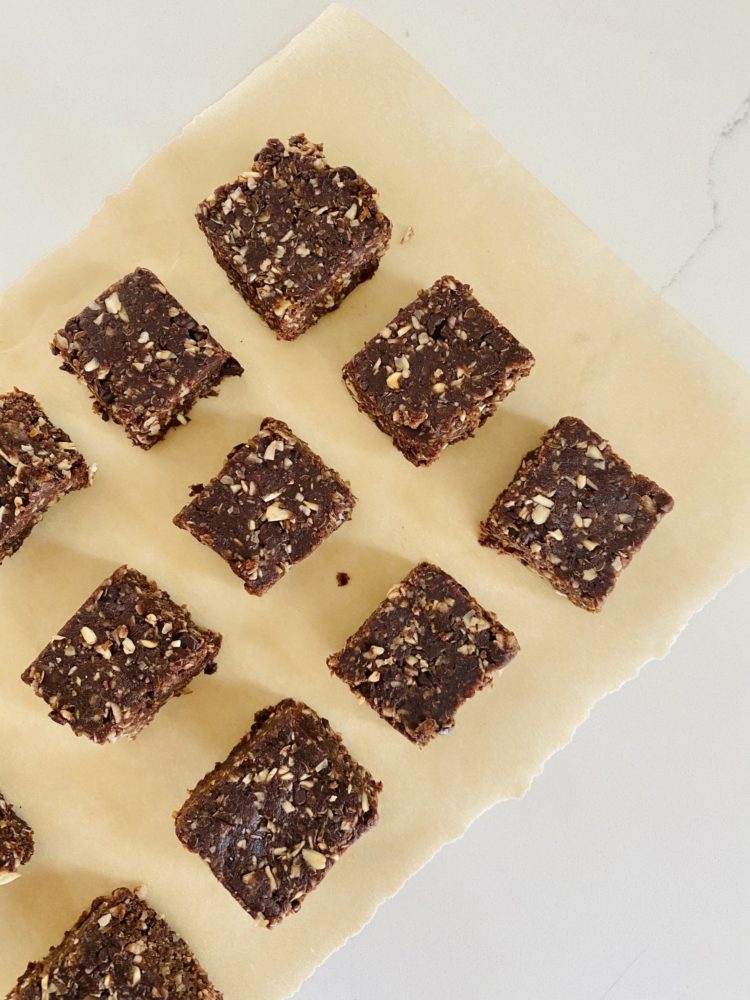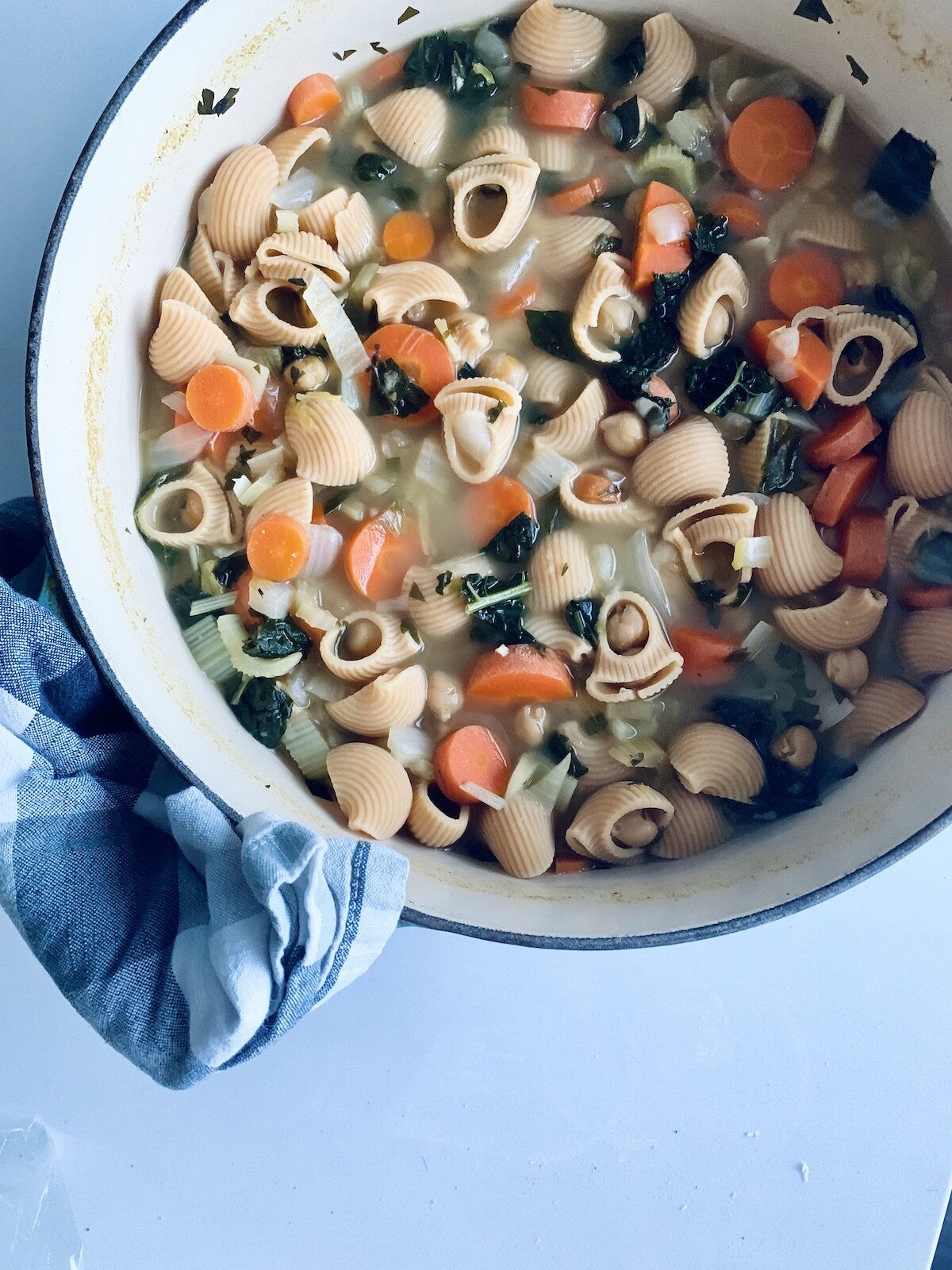Carbohydrate-rich foods like whole grains and starchy vegetables are excellent sources of fiber, B vitamins, and other important micronutrients that women need to maintain their health. Women can especially benefit from the increased fiber that comes with eating diets higher in complex carbohydrates.

Why are carbohydrates important?
Carbohydrates are the body’s preferred source of energy. In fact, glucose (carbohydrates broken down in the bloodstream) is the only energy source the brain can use. This is why people often feel lethargic, irritable, and unfocused when they restrict carbohydrate-rich foods. So, carbohydrates are really important.
Best Sources of Carbohydrates for Women
When it comes to carbohydrates, we want to emphasize complex carbohydrate sources, or sources that are closer to their “whole” form with their fiber and other nutritional benefits more intact. Complex carbohydrate sources also release into the bloodstream more slowly which helps keep energy levels consistent. Fruits and vegetables – especially starchy vegetables like winter squashes, potatoes, sweet potatoes, and corn – beans, whole grains, and foods made from whole grain flours like whole wheat bread or brown rice pasta are all examples of complex carbohydrates. There is a large body of evidence that connects these foods to better health, better athletic performance, and living longer.
There are also simple carbohydrates which include foods that have been refined or separated from their fiber and other nutrients (white flour, for example) or they are just a simpler form of sugar like maple syrup or honey. Simple carbohydrate sources do not tend to be rich in fiber or other nutrients that support health, and they are released in the bloodstream faster which can have some consequences to our health and energy. This is not to say we should eliminate them completely. They certainly play a role in pleasure and even in athletic performance where a quick-release carbohydrate is the best choice.
Carbohydrate-Rich Foods to Emphasize
- Whole Grains:
- Oatmeal
- Brown rice
- Quinoa
- Barley
- Whole Grain Products:
- Whole grain pasta
- Whole grain breads
- Whole grain tortillas
- Whole grain pita
- Starchy Vegetables:
- Corn
- White potatoes
- Sweet potatoes
- Winter squashes (butternut, acorn, spaghetti, pumpkin)
- Fruits
- Beans and Lentils
How Much Carbohydrate Do You Need?
The recommendation for carbohydrates is 45-65% of daily calories.
A perhaps more important recommendation to pay attention to when it comes to carbohydrate-rich foods is fiber. Women need at least 25 grams of fiber per day, and may see even more benefit by eating 40 grams per day. These fiber recommendations are easily achieved from plant-based foods.
Tips For Meeting Fiber Needs
- Choose whole grains as much as possible (brown rice instead of white rice, whole wheat flour instead of all-purpose flour, etc.)
- If you or your family are still adjusting to the different flavors and textures of whole grains, try mixing them to make them more palatable (mix white rice and brown rice)
- Use whole wheat pastry flour to replace all or part of all-purpose flour in baking
- Snack on whole fruit or vegetables throughout the day
Common Questions About Carbohydrates
Do carbohydrates cause weight gain?
Although low-carbohydrate diets often lead to weight loss in the short-term, the average weight loss ends up being the same as higher carbohydrate diets in the long-term. So, cutting carbohydrates is not a successful long-term weight loss strategy.
Low carbohydrate diets have been linked to heart disease and other health problems, while emphasizing plant-based foods has been proven to support health. Studies show that people are able to achieve a healthy weight on a plant-based diet even while eating high amounts of complex carbohydrates.
Should you avoid gluten?
Less than 1% of people need to avoid gluten for health reasons, so unless you’ve been reliably diagnosed with a gluten allergy (celiac disease), then you do not need to avoid gluten.
If you do choose to avoid gluten, do not let your intake of healthful whole grains and fiber suffer. Make sure you’re including gluten-free grains like rice, quinoa, buckwheat, millet, amaranth, brown rice pastas, and corn tortillas in your meals. I do not recommend relying on the excess of gluten-free packaged foods at the grocery store – they tend to be expensive and are often more processed and unhealthy than their gluten-containing counterparts.
Is the sugar in fruit unhealthy?
While fruit does contain sugar, it is a naturally-occurring source of sugar that comes packaged with wonderful fiber, water, antioxidants, and health-supporting vitamins and minerals. Studies have shown that even at TWENTY servings of fruit a day, there are no adverse effects (except, of course, leaving little room in your stomach for other important foods groups!). The problem with fruit is probably not whether or not you are eating too much, but rather whether or not you are eating enough. Aim for at least 3 servings of fruit per day.


